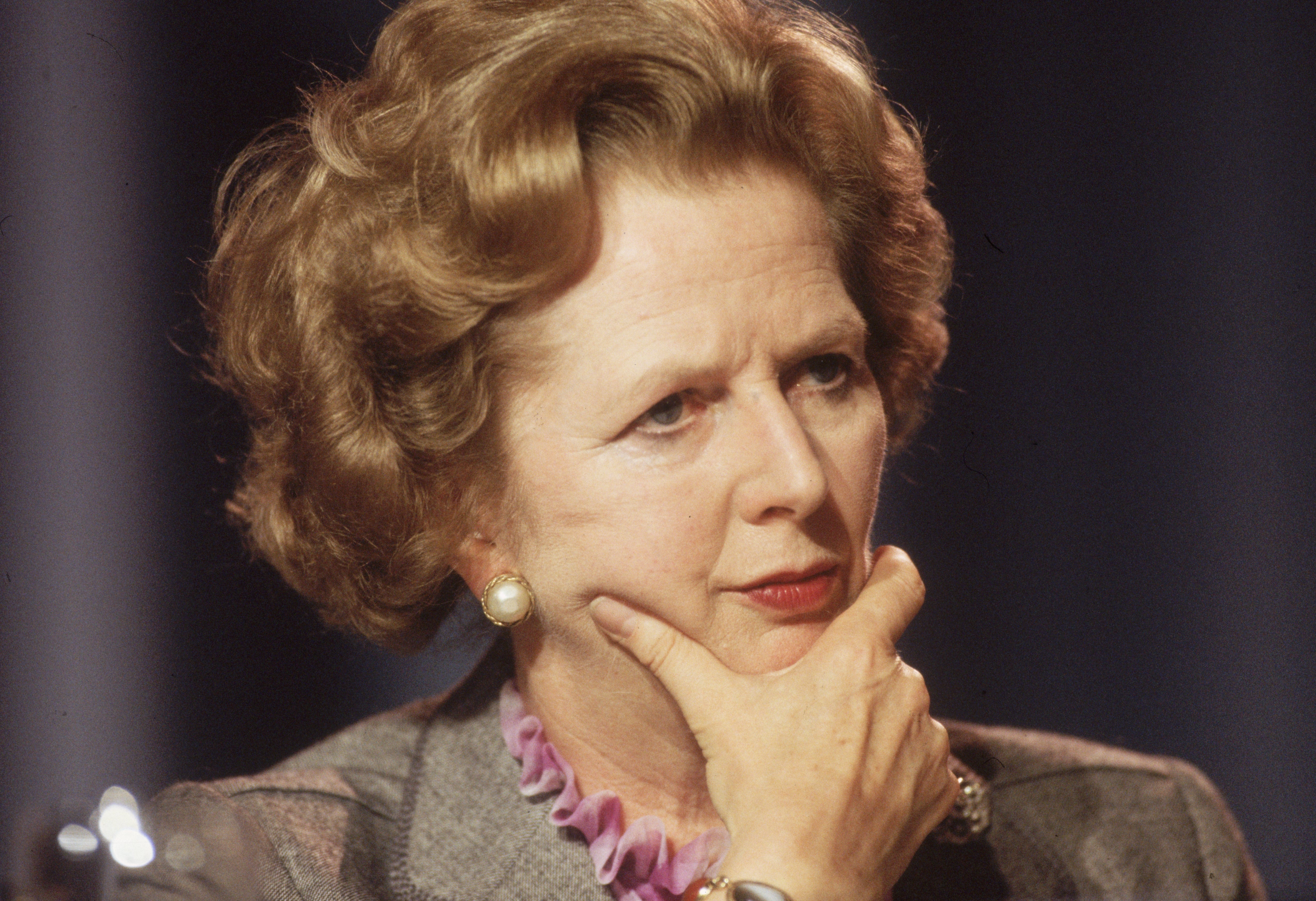Why isn’t Boris Johnson channelling his heroine Thatcher on the windfall tax?
The prime minister who was the architect of arguably the first British windfall tax? Margaret Thatcher


Disruption to global oil supply, soaring inflation, rising interest rates, a looming recession – and a levy on North Sea oil and gas producers. Not 2022, but four decades ago.
And the prime minister who was the architect of arguably the first British windfall tax? Margaret Thatcher. Now even her sworn enemies want Boris Johnson to take a leaf out of his heroine’s fiscal book.
The historic parallels between now and then are pretty striking. Energy crises in the 1960s and 1970s helped fuel inflation, creating a headache for Thatcher and her chancellor Sir Geoffrey Howe. Rising prices and interest rates were hurting people – and making the Conservatives deeply unpopular.
Searching for a solution, the then-chancellor seemed to warm to his business-bashing theme, following his 1980 levy on the North Sea giants with a windfall tax on the banks a year later.
The former premier reflected in her memoirs about how the banks squealed. “Naturally, the banks strongly opposed this, but the fact remained that they had made their large profits as a result of our policy of high interest rates rather than because of increased efficiency or better service to the customer.”
I’m sure the current leader of the opposition would find himself concurring, except now the target is the likes of BP and Shell. But what’s striking is that a growing number of senior Conservatives, from former leader Lord Hague to the chairman of the education select committee Robert Halfon, are finding themselves nodding along too.
You don’t even have to go back to Thatcher’s era to find Conservative support for taxing the energy giants. During the coalition government in 2013, former PM Sir John Major called for a windfall tax, saying presciently: “Governments should exist to protect people, not institutions. It is not acceptable to me, and ought not to be acceptable to anyone that many people are going to have to choose between keeping warm and eating. The private sector is something the Conservative party supports, but when the private sector goes wrong, or behaves badly, I think it’s entirely right to make changes and put it right.”
Cost of living: how to get help
The cost of living crisis has touched every corner of the UK, pushing families to the brink with rising food and fuel prices.
- The Independent has asked experts to explain small ways you can stretch your money, including managing debt and obtaining items for free.
- If you need to access a food bank, find your local council’s website using gov.uk and then use the local authority’s site to locate your nearest centre. The Trussell Trust, which runs many foodbanks, has a similar tool.
- Citizens Advice provides free help to people in need. The organisation can help you find grants or benefits, or advise on rent, debt and budgeting.
- If you are experiencing feelings of distress and isolation, or are struggling to cope, The Samaritans offers support; you can speak to someone for free over the phone, in confidence, on 116 123 (UK and ROI), email jo@samaritans.org, or visit the Samaritans website to find details of your nearest branch.
So what’s holding back today’s chancellor, Rishi Sunak? Despite Thatcher blazing a trail on this fiscal policy, many Conservatives view raising any taxes as an inherent anathema. They worry that windfall taxes in the end lead to price rises for consumers, as businesses simply pass the burden on.
And they can’t get away from the fact that the last time a windfall tax was levied in the UK was in 1997 – when the Blair government taxed the utilities privatised by Thatcher herself. One adviser to the current PM is reported to have said the idea is “ideologically unConservative”.
Those backing a windfall tax might argue that it’s time to draw on an old Thatcherite adage once again: TINA. There Is No Alternative. Governments around the world are battling forces they can’t control (aka Vladimir Putin) and as the governor of the Bank of England has made abundantly clear, there are very few fiscal or monetary levers to pull.
To keep up to speed with all the latest opinions and comment, sign up to our free weekly Voices Dispatches newsletter by clicking here
A windfall tax won’t raise very many billions, but it would be (as The Telegraph reported) “wildly popular” with the public. Even Tory MPs who support Boris Johnson fear he risks making the same mistake as then prime minister Gordon Brown, when he resisted pressure from his own backbenchers and ministers to slap a windfall tax on energy companies to offset soaring fuel bills back in 2008. He went on to lose the general election two years later.
Unlike Thatcher, Johnson wants to be universally loved. But having basked in public adulation when he flashed the cash with his “eat out to help out” scheme, his chancellor is now realising how tough it is to hold the purse strings during a time of economic pain.
A Conservative MP told the Times: “No 10 obsessive ideologues are holding back a sensible policy.” If they are indeed blocking a windfall tax on ideological grounds, someone should give them a copy of Thatcher’s memoirs. Perhaps that will reassure them that Conservatives can tax big business too.
Cathy Newman is presenter and investigations editor of Channel 4 News
Join our commenting forum
Join thought-provoking conversations, follow other Independent readers and see their replies
Comments
Bookmark popover
Removed from bookmarks